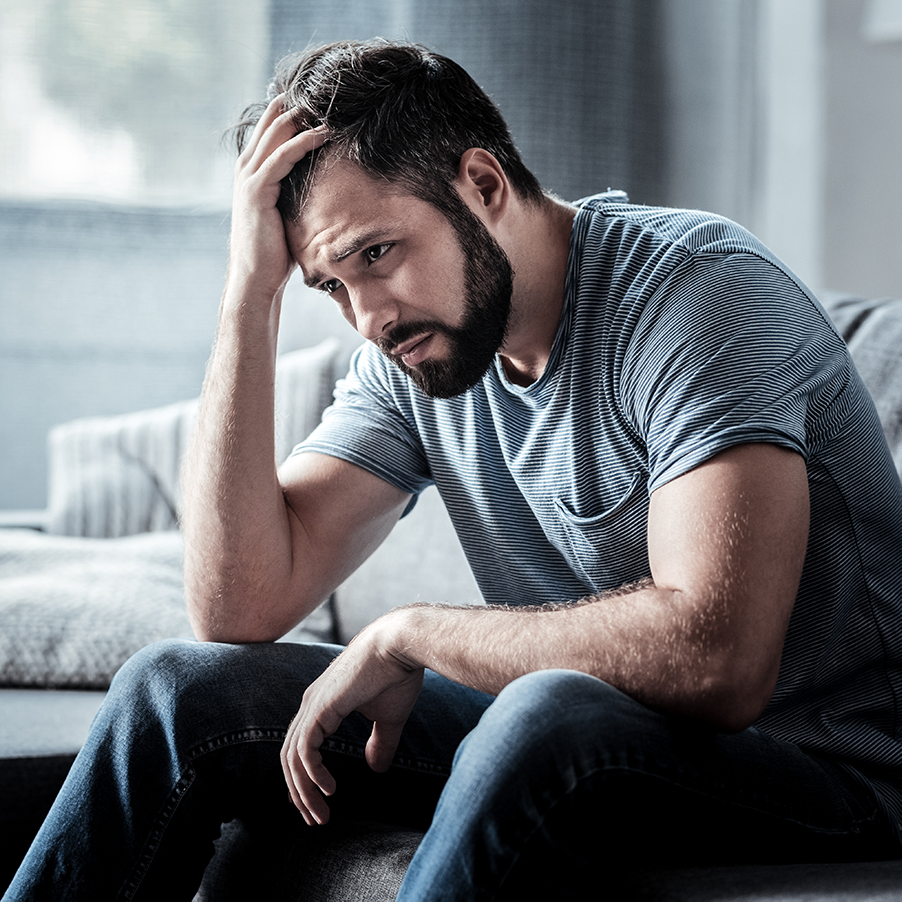Out of the Darkness of Loneliness, Anxiety and Addiction into the Light
Emotional Darkness
It’s not easy to cover men’s mental health issues because talking about how they feel seems to go against the unofficial male code of conduct. Despite all the advances we’ve made since The Dark Ages, there is still a stigma surrounding men who allow themselves to experience emotion—and then talk about it.
The most basic male stereotype – that men don’t cry – often leads men into a mental health crisis. The common professional belief is that emotions are meant to be felt, which is how they are released. Suppressing emotions can cause a variety of physical and mental health issues over time.
Whether they’re willing to talk about it or not, men’s most common mental health issues are loneliness, anxiety and addiction.
Loneliness
Last year, the surgeon general put out an advisory referring to isolation and loneliness as a public health crisis in our country, warning that lacking connections can be comparable to smoking in increasing the risk of premature death.
You might be surprised to learn that men may be even more likely to struggle with loneliness than women, especially if your man appears rather independent . . . the lone wolf type. In fact, men often use isolation to avoid talking about their feelings or facing what’s really bothering them.
Dwight Bain, a licensed mental health counselor in Winter Park, suggests to ask about stress or sleep if you want to get a guy talking.
“If you ask about depression or anxiety, he usually won’t have anything to say,” he says.
Dwight recommends not asking the man in your life about his feelings directly, unless you want to be confronted with anger, the one emotion most men feel comfortable expressing. Instead, Dwight suggests taking a softer approach that could help lead your man to defining his own feelings.
Anxiety
If a man felt comfortable talking about his feelings, he might say, “Why shouldn’t I feel anxious?!” Men often feel pressure managing a career, marriage and family obligations. When you add to that general angst over the economy, national and world affairs, anxiety seems inevitable.
In addition to isolating themselves to avoid talking about their feelings, men tend to adopt escapist behaviors to avoid endlessly thinking about their problems or feeling those dreaded emotions. Behavior like spending long hours at work or working out can be masking anxiety or depression according to the Anxiety & Depression Association of America.
What starts out as a way to avoid dealing with issues can turn into a bigger problem.
“Video games, porn, alcohol and other addictions can often be traced back to the need for a simple diversion from the ruminating,” Dwight explains.
Ruminating or brooding doesn’t lead to solutions, and those escapist behaviors can easily turn into addictions.
Addiction
For most people, there is a fine line between alcohol use and alcohol abuse. It is still the most socially accepted drug, especially for the current demographic of retirees. In most areas of the country, alcohol is legal, available and relatively inexpensive. A six-pack of beer is cheaper than a fast-food meal.
Retirees might be particularly susceptible to addiction now that their responsibilities are few and their time is their own.
“Substance abuse is a means of escape,” Dwight says. “The key is figuring out what problems you are trying to avoid.”
The roots of addiction are always there. You grew up with them, maybe in your genetics, maybe in your environment, maybe among your peers. Using substances to escape emotions is where things can really go wrong.
Moving into the Light
Life is difficult. Relationships are work. Avoidance doesn’t solve the problem and escaping could cause more problems. Now what?
If you’re not ready to go the therapy route, these healthy lifestyle tips may help you improve your mental health on your own:
• Connect with at least one person in real life every day.
• Limit your exposure to news. Try replacing 30 minutes of your favorite news broadcast with a half-hour comedy show.
• Make sleep a priority. It is easier to deal with emotions when you are well rested.
• Limit caffeine, nicotine and alcohol use.
• Try yoga or Thai Chi to reduce stress.
• Don’t be afraid to seek professional help.

